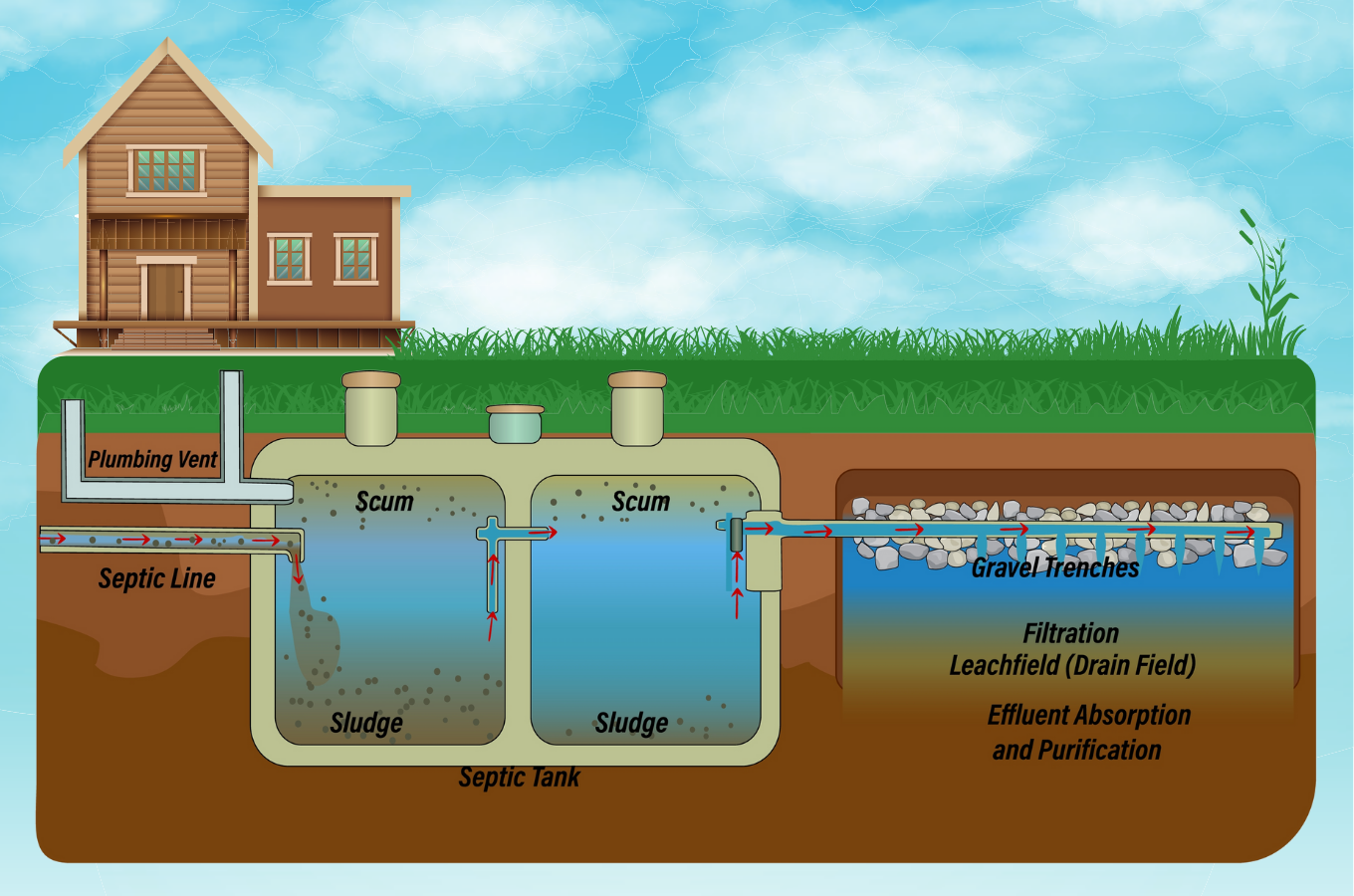It is crucial to ensure the health of your septic system to protect your property and the environment. An appropriately operating septic system efficiently processes effluent while preventing soil and groundwater contamination by pollutants. Neglecting proper maintenance, on the other hand, can result in expensive repairs, environmental harm, and health risks. Emphasizing the significance of routine septic pumping, this article will cover crucial advice for preventing injury to your residential septic system.
Comprehending The Septic System
Before discussing preventative measures, it is essential to have a thorough understanding of how septic pumping Santa Clarita operates. The integral components of a standard septic system are the septic tank and the disposal field. Solid waste descends to the bottom of the septic tank, where it is combined with wastewater from your residence to form a slurry. Bacteria decompose the organic matter, whereas the clarified effluent is discharged into the drain field for absorption by the soil.
Avoid System Overloading
To ensure the proper functioning of your septic system, exercise caution regarding the substances you dispose of in the sewer or commode. Infant wipes, sanitary items, oil, and home chemicals can clog pipelines and impede wastewater treatment if flushed. Furthermore, to reduce water consumption, it is advisable to address any leakage, install low-flow fixtures, and distribute amounts of laundry and dishwasher use over the week.
Safeguard Your Drain Field
The drain field is an essential septic system component as it filters and absorbs effluent. Avoid parking vehicles, planting trees, and constructing structures over the drain field to prevent damage, as these activities can agglomerate the soil and obstruct water absorption. Avoid saturation, groundwater contamination, and sewage blockages by diverting surface water from the drain field.
Conduct Routine Inspections
Consistent examinations are critical to detect potential problems before they escalate into expensive remedies. Have a qualified septic pumping Los Angeles, inspect your system every one to three years. Throughout the inspection, the technician will evaluate the condition of the drain field and look for indications of damage, leakage, and sediment accumulation in the septic tank. Pre-emptively addressing issues in their early stages can avert the emergence of more substantial complications in the future.
Utilize Septic-Safe Items
Choose septic-safe cleaning products for your home to protect septic tank microorganisms. Numerous household cleansers contain abrasive chemicals that can upset the delicate equilibrium of microorganisms, resulting in a decrease in the efficacy of effluent treatment. To reduce the likelihood of injury to septic systems, search for eco-friendly cleaning products that bear the label “safe for use on septic systems.”
Continuously Assess The Performance Of Your System
Maintain vigilance and regularly inspect the performance of your septic system. Notify others of impending sewage blockages, sluggish drainage, noxious aromas, or stagnant water in the vicinity of the septic tank or drain field. These symptoms may indicate an acute septic system issue. Failure to resolve these warning signs may result in the development of more serious complications.
Conclusion
It is critical to have a properly maintained septic system in order to safeguard your property, health, and the environment. By practicing these preventative measures and prioritizing routine septic draining, you can ensure that your septic system continues to function efficiently for many years. Constantly bear in mind that maintaining a septic system correctly is a communal obligation that demands conscientiousness, diligence, and proactive upkeep. Placing an investment in the present state of your septic system can provide you with assurance and prevent potential complications in the long run.

